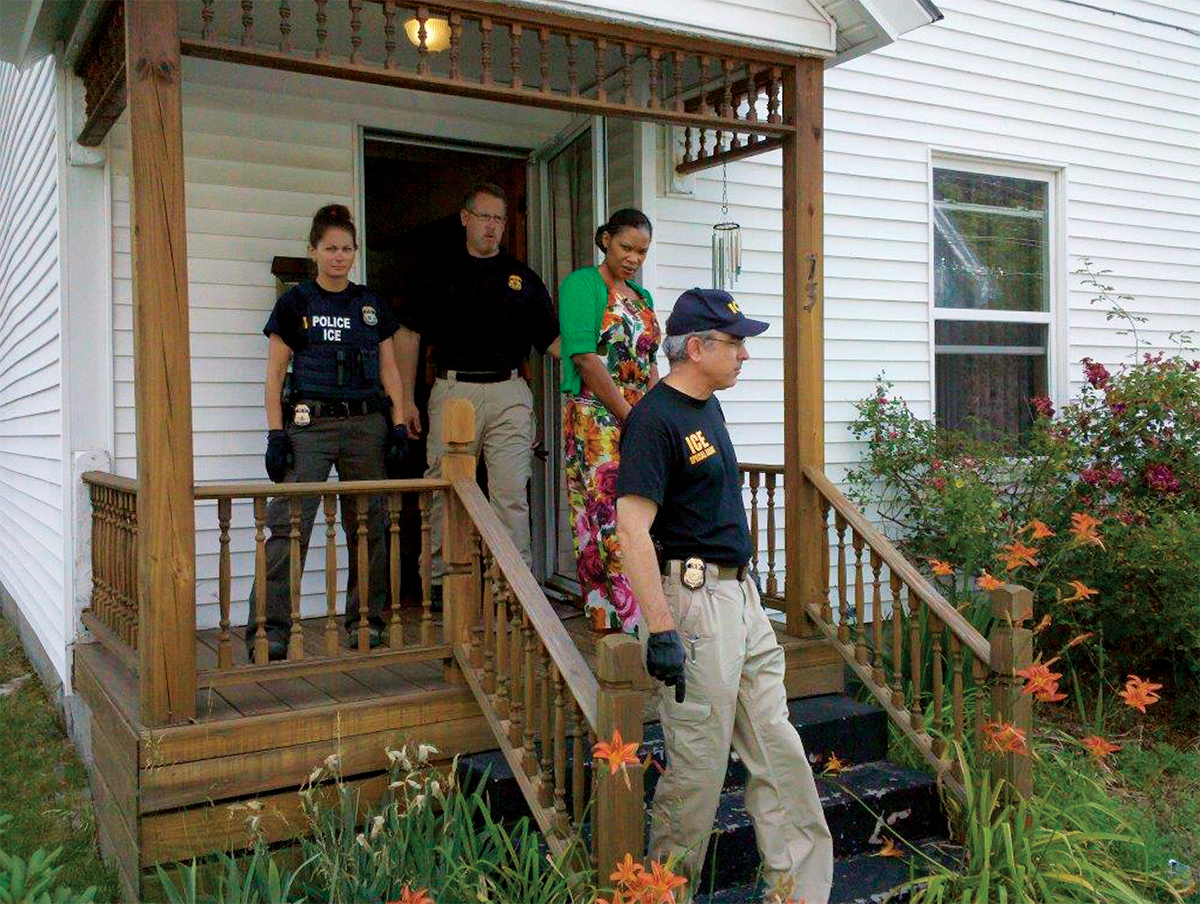The Monster Next Door

Skeletal remains at a Rwandan genocide memorial. / Photograph courtesy of Brian Andersen
Over the next two years, Andersen and his team flew back and forth from Boston to Rwanda, painstakingly gathering additional testimony and evidence. Each time they went, the crew was required to undergo endless immunizations that left them sweat-soaked and sleepless, to swallow the medication that prevented malaria but provoked nightmares. They visited memorials to the Rwandan genocide, including an orphanage filled with children’s skulls. For the victims Andersen spoke with and befriended, the memories were tactile, their bodies still covered in scars. Andersen began to feel the weight of responsibility. Not only was he trying to catch a killer, he was also seeking justice for a generation of victims. “If there was anything I could do about that,” he says, “I wanted to do it.”
Visit after visit, information continued to pour in. In addition to interviewing survivors who identified the Commander by name, Andersen toured prisons and spoke with Hutu killers, men who showed little remorse for what they had done and who Andersen believed “may get out and do it all over again if given the chance.” They identified Munyenyezi’s photograph and said aloud, “That’s her.” To Andersen, there was no confusion. “We had both sides of the story,” he says. “We had talked to killers. We had talked to survivors. Both told us the same thing: Beatrice was a killer. Beatrice was not a bystander.”
When Andersen returned from his ninth trip to Rwanda, in 2010, a federal judge in Concord, New Hampshire, signed a warrant to arrest Munyenyezi at her home in Manchester on two counts of lying to the U.S. government about her participation in the Rwandan genocide. Walking out of the judge’s office with the warrant in hand, Andersen smiled. There was one thought going through his mind: “I’m going to enjoy putting the bracelets on her.”
The sun was shining at 6:30 a.m. on June 23, 2010, when Andersen rang the front bell and pounded on the door of 73 Goffe Street in Manchester. A woman emerged, her hair unkempt, nothing but a blanket wrapped around her naked body. “Federal agents,” Andersen barked as he pushed passed her into the rented home. By then, Munyenyezi had lost the cute New England house with a pool next door to LoriAnn and Scott Silver. In fact, she was bankrupt. In 2008, Munyenyezi had lost her job at the Manchester housing authority due to department cutbacks. Then she lost the house and declared herself unable to pay the roughly $400,000 in debt she had accumulated since arriving in the United States. “We have a warrant for your arrest,” Andersen said. “We have a warrant to search the house.”
Federal agents fanned through the home to make sure Munyenyezi did not destroy any evidence. Her three teenage daughters, Charlene and the twins, Saro and Simbi, were in tears as a female agent put clothes on Munyenyezi and walked her into the living room, where Andersen slipped on the handcuffs. When he identified himself as a special agent with Homeland Security, Munyenyezi looked him straight in the eyes. She didn’t cry, as Andersen had seen other suspects do. Instead, he says, she sneered and uttered her first and only statement to the agent: “I have nothing to say to you.”

Federal agents arrest Munyenyezi at her home in New Hampshire. / Photographs courtesy of Brian Andersen
Soon after, prosecutors unsealed an indictment containing a long series of hair-raising accusations. The language may have been legalese, but the point was clear. The woman neighbors had known as a kindly New Hampshire mother had allegedly “participated, committed, ordered, oversaw, conspired and aided and abetted, assisted in and directed the persecution, kidnapping, rape and murder of numerous individuals at the roadblock in front of the Ihuriro Hotel in Butare.” Munyenyezi denied the charges and pleaded not guilty. Her lawyers insisted that she was just a single mom who had fled a war-torn nation, and was now being traumatized a second time by overreaching federal officials. They noted she had never been arrested in the United States.
Still, the prosecution was optimistic. By the time Munyenyezi’s trial began in February 2012, something else had happened to bolster their already high hopes for a conviction. Eight months earlier, the international tribunal had found Munyenyezi’s husband guilty of committing genocide and war crimes, and sentenced him to life in prison. The prosecution had taken 10 years and called more than 185 witnesses. When Munyenyezi’s mother-in-law was also found guilty and sentenced to life, she became the first woman ever convicted by the ICTR for the crime of inciting rape as a tool of genocide.
Despite the ICTR convictions and the mountain of evidence he’d spent years collecting, Andersen was nervous. Along with his fellow agents, he sat in the courtroom wearing purple ties in memory of the Rwandan genocide victims. And the longer they sat in the courtroom, the more he worried. What American jury, he wondered, had the context to comprehend the horrific reality of thousands killed at a makeshift roadblock halfway around the world? What did they know about Rwanda to begin with? Did they even know that genocide occurred there? Would they believe that Munyenyezi had been the ringleader? And that she and her husband’s family were responsible for the deaths of scores, hundreds, maybe thousands at that roadblock? “What she did and what she subjected people to is not humane,” Andersen says, “and the crimes are beyond the comprehension of most American juries.’’
At trial, the U.S. attorney had what seemed like a solid strategy: The prosecution looked to Munyenyezi’s co-conspirators and underlings to rat on their boss. It was an approach that seemed straight out of the playbook the feds have been using, for decades, to dismantle organized crime. During 11 days of testimony, the government called 22 witnesses. Several admitted killers from Butare took the stand and testified to taking orders from “the Commander” and killing the “Inyenzi,” or “cockroaches,” which referred to the Tutsis. The jury also heard stories from victims, such as Aleysia Mukankuriza, who claimed Munyenyezi ordered a soldier “to rape me.” And there was even testimony about the murdered nun from a man who had led investigators to the mass grave where she fell.
Munyenyezi did not testify. Her defense attorney flew in family members who claimed she had stayed inside the hotel to care for her daughter during the genocide and that several of the prosecution’s witnesses had contradicted previous testimony given in Rwandan and international courts.
It didn’t take long for Andersen to notice that jurors were having trouble, notably with the court translators. It was difficult listening to testimony in a variety of languages, and some of it did not translate well. Boredom and confusion crept over jurors’ faces.
After four days of deliberation, the jury was hopelessly deadlocked, and U.S. District Judge Steven McAuliffe declared a mistrial. “I can’t speak,” Munyenyezi said as reporters followed her out of the courthouse, a free woman for the first time since Andersen personally cuffed her in June 2010. “Maybe I can answer questions another time.”


